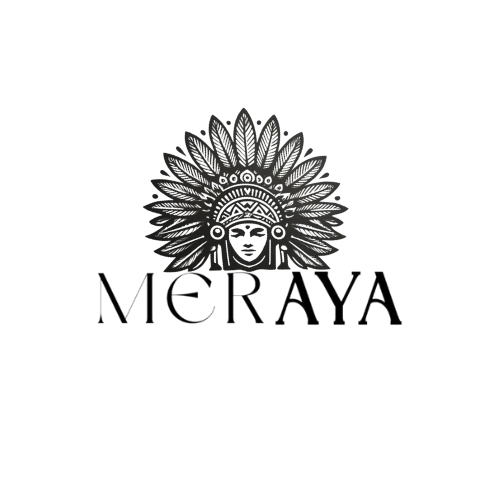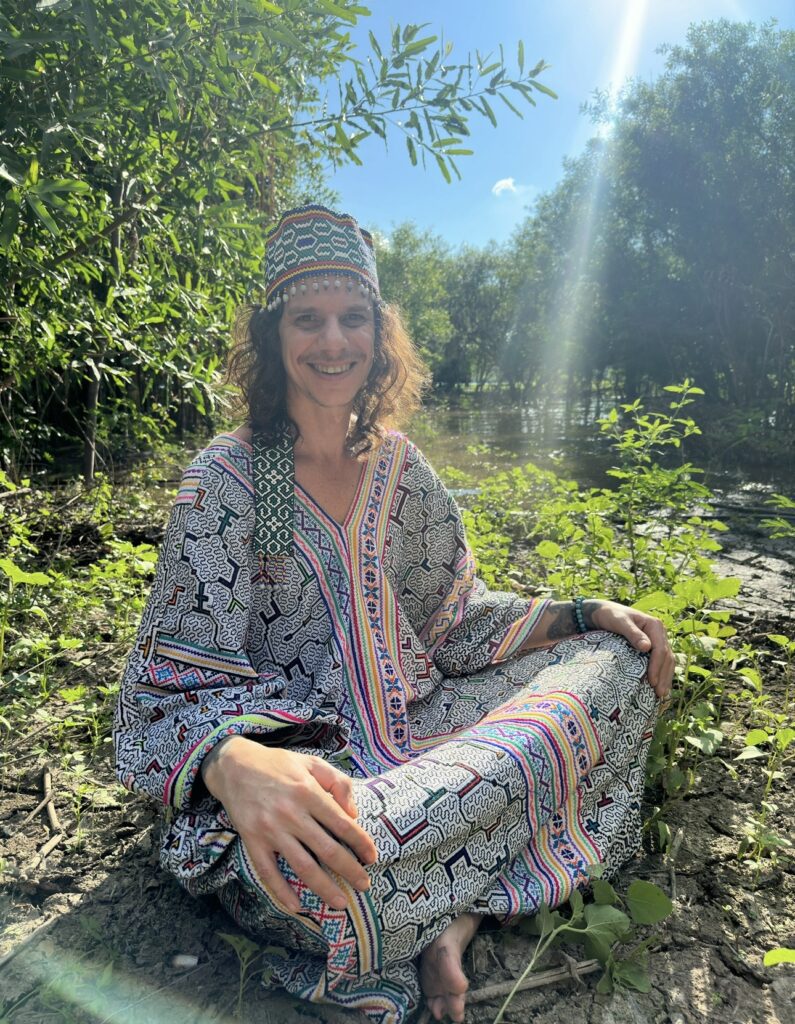Shipibo Conibo Culture
For millennia—spanning well over 2000 years—the Shipibo indigenous tribes of the Ucayali region within the verdant embrace of the Amazon River basin have been esteemed as the guardians of the jungle. Initially two separate entities, the Shipibo and Conibo tribes ultimately merged into one through the bonds of intermarriage and shared cultural affinities.
Even as they navigate the complexities of the 21st century, these stewards of tradition meticulously preserve the ancestral practices passed down through generations. Among these hallowed customs is the ritualistic use of Ayahuasca and a cornucopia of other plant medicines indigenous to the Amazon.
Straddling the threshold between ancient wisdom and modern existence, they are devoted to safeguarding the profound knowledge culled from an unbroken lineage—a legacy rooted in living amidst one of the most richly biodiverse regions on our planet.
The Shipibo community boasts a population of roughly 20,000, with the majority residing around Pucallpa in the vicinity of Yarina Cocha and along the stretch of the Ucayali River region—an expanse recognized as an extensive indigenous zone. The remaining Shipibo people are dispersed across remote villages spanning a vast area of jungle forest that unfurls from Brazil to Ecuador.
For centuries, the Shipibo lived in relative seclusion until the advent of the 19th-century rubber boom, which ushered in an era where they were integrated into the larger economy as wage laborers. Their roles primarily revolved around agriculture and timber extraction, under the oversight of mestizo bosses and patrons. Interactions with Western society also emerged through encounters with physicians and nurses, Protestant missionaries, and emissaries from the Peruvian government.
In contemporary times, the Shipibo community exhibits a spectrum of acculturation. On one end are those who have integrated well—often found near the burgeoning frontier city of Pucallpa. On the other, more moderately acculturated groups maintain their existence in remote areas downriver. Despite this diversity, Shipibo culture collectively faces a barrage of challenges—reeling under the unrelenting pressures of colonialism, corporate resource exploitation including oil speculation and logging, the perils of narco-trafficking, and pervasive missionary influence—all of which threaten to erode their cultural heritage and way of life.
Amidst the varied tapestry of cultures, the Shipibo stand out, embodying the quintessential traits shared by many indigenous tribes with a profound bond to the land. At the heart of their society are the tenets of family and community, serving as pivotal pillars for both social cohesion and survival. Within these communities, the collective sharing of labor is a customary practice.
In the agrarian dance of life, both Shipibo men and women historically engage in agricultural endeavors. While men undertake the physically demanding task of felling trees, women often contribute to tending the fields. The bounty of nature is also harvested through fishing and gathering wild foods—a responsibility embraced by both genders, though typically skewed towards women.
Women’s roles extend into nurturing realms—preparing meals, caring for children, managing most household tasks, and creating an array of handcrafted goods including ceramics, textiles, and intricate beadwork. Men, on the other hand, are tasked with constructing homes, crafting canoes, forging weapons, and sculpting wooden artifacts. However, in more modern settings, it’s commonplace for men to seek employment as wage laborers outside the community, sometimes necessitating extended periods away from their families.
At the core of Shipibo culture is a profound and enduring spirituality, with particular reverence for plant spirit shamanism. For the Shipibo, an intimate understanding of the world—especially in the realms of healthcare and cosmology—is gleaned directly from the botanical world itself.
This spiritual connection is exquisitely woven into their creations—be it pottery, textiles, baskets, art, or beadwork. Each piece is an intricate tapestry, capturing the essence of an energy field that intertwines with all facets of existence. The designs crafted by their hands are more than mere aesthetics; they are visual narratives of unity, embodying the philosophy that all life is interconnected and non-dualistic. These motifs also serve as a visual lexicon for a profound dialogue with the spirits and elemental forces of the Rainforest.
The Shipibo’s visionary art transmutes this worldview into tangible form, establishing a bridge between physical and metaphysical realities. Equally fascinating is the relationship between their visual art and their sacred music—the Icaros, or healing songs, integral to Ayahuasca ceremonies. These Icaros are not merely melodies but auditory counterparts to the visual patterns—a shaman can perceive a pattern and vocalize its matching Icaro, or inversely, hear an Icaro and craft its visual equivalent. This bidirectional translation between sight and sound encapsulates their multifaceted cosmological system—a testament to a rich cultural heritage that continues to thrive through their practices and artisanal expressions.
he Shipibo are the custodians of an ancient and revered tradition of shamanism, adept at navigating the ethereal realm of energy to mend a spectrum of afflictions, be they physical or psycho-spiritual. The path to becoming a healer in this tradition is one of dedication, marked by rigorous training, the guidance of apprenticeship, and disciplined master plant diets.
Possessing deep-seated knowledge and spiritual acumen, these healers summon a cadre of plant-spirit allies, engaging with the patients’ energetic essences to restore balance where there’s discord. Illnesses, malaise, entrenched negative thought patterns, and emotional barricades are perceived as manifestations of energetic disharmony within the individual.
Immersed in the ceremonial sanctity of Ayahuasca, Shipibo shamans employ potent energy work and the transcendent melodies of the Icaros—the very healing songs bestowed upon them by the master plants. This sacred practice allows them to realign the energetic fields, delicately unraveling and liberating the ‘spiritual knots’ that ensnare vital energies awaiting liberation.
The fruition of this healing journey is profound for the patient; it paves the way for the release of deep-seated blockages, fostering an awakening that draws them nearer to self-actualization—a transformative process where they confront, transmute, and assimilate their shadow selves. Through this ancient art of shamanic healing, the Shipibo help individuals embark on a path toward holistic well-being and personal enlightenment.
Icaros – healing songs of the plants
The vessel of transformation during sacred ceremonies is intricately bound to sound frequency, or vibration. Sound, a universal modality of healing, resonates across a multitude of ancient and indigenous cultures. For shamans, the pathway to harnessing this profound tool is one of discipline, forged through the practice of strict Dieta with diverse plant teachers from the depths of the jungle.
Embracing this ritual entails the consumption of their botanical mentors—typically steeped in a ceremonial tea—followed by a period of isolation, and the observance of a stringent diet. This diet meticulously avoids a wide array of foods and substances, such as salt, oil, fat, and sugar, as well as refraining from energetic exchanges like sex. The purpose is singular: to attune oneself to receive the potent healing properties and wisdom imparted by each plant.
It is believed that every plant possesses a unique energetic healing pattern, which the shaman, now a conduit between worlds, channels through their incantations. These songs are not merely melodies but are the audible essence of the plant’s vibrational medicine, woven into existence by the shaman’s voice—a symphony that orchestrates the journey towards healing and balance.
During the sacred rite of ceremony, the shaman becomes a vessel through which healing patterns of energy are accessed and transformed into a sacred chant or Icaro. This Icaro is not merely a song but a profound channel for the intricate patterns of creation itself, which then suffuse the very being of the shaman’s patient. In this mystical process, geometric patterns imbue the patient’s energetic body with harmony, realigning and recalibrating their inner essence.
The Shipibo hold a core belief that our overall health is intrinsically linked to the harmonious unity of mind, body, and spirit. Any disruption to this delicate balance—be it through internal disturbances such as fear, hate, or anger, or external adversities absorbed by the individual—can precipitate detrimental effects on one’s well-being. The shaman’s role is to re-establish balance, infusing the patient with Icaros that resonate with healing frequencies.
The shaman possesses an innate sense when the healing reaches fruition; it is at this moment that the design within the patient’s energetic field becomes vivid and distinct. This process often necessitates multiple ceremonies, culminating in the creation of an Arkana—a completed tapestry of healing designs within the patient, believed to be a permanent safeguard for their spirit.
Patients emerge from this experience realigned and able to engage with life from a place of energetic equilibrium. They find themselves capable of forging deeper connections—with their own selves, with others, and with the world at large—operating from the heart’s intuitive wisdom rather than solely from the intellect. This transformation fosters a life lived in greater consonance with all that surrounds them.
JOIN OUR COMMUNITY
Sign up now to gain access to your Free Ayahuasca Master Class Video Training Course. Plus, receive ancient Shamanic practices delivered directly to your inbox on a regular basis. Join our community of next-level Ayahuasca facilitators and elevate your journey today!


